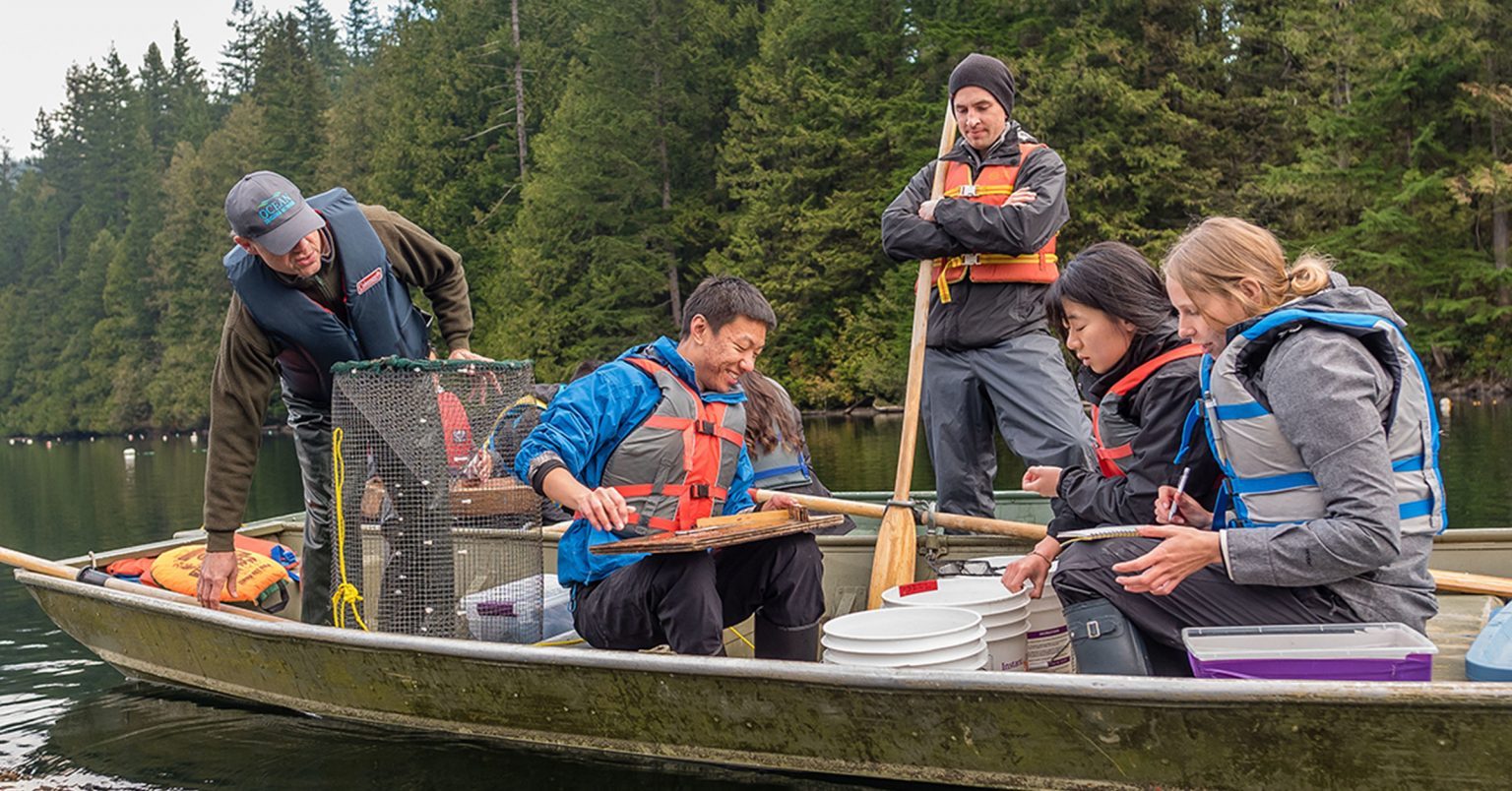Congratulations to Language Sciences members, Dr. Jiaying Zhao, PhD Candidate Marianne Huijsmans, Dr. Christine Schreyer and Dr. John Lyon for receiving 2021-22 Community University Engagement Support (CUES) funding!
CUES funding reduces financial barriers and prioritizes reciprocal, inclusive engagement so all communities - especially those that have been and continue to be underserved, marginalized, or excluded - can benefit.
A total of 27 projects were awarded CUES funding, representing nine faculties across Vancouver and Okanagan campuses. Eight projects had student co-applicants and eleven Indigenous community partners were funded.
Language Sciences Member Projects
New Leaf Expansion Project - Storytelling Experience Building, Narrative Inquiry
UBC Partner: Dr. Jiaying Zhao, Department of Psychology
Community Partner: Jerome Parades, Foundations for Social Change
The New Leaf project is the world’s first program evaluating the impact of cash transfers in empowering individuals experiencing homelessness to move back into stable housing, regain food and financial security, and improve their physical and psychological well-being.
Originally piloted in 2018 with a smaller sample size of 50 cash recipients, the New Leaf project provided scientific evidence that unconditional cash transfers can be an effective solution to preventing chronic homelessness for those without severe addictions or mental health issues, while also reducing pressure on the shelter system and freeing up resources that can be redirected to those requiring more extensive and complex support.
In collaboration between UBC professors, Dr. Jiaying Zhao and Dr. Anita Palepu, and Vancouver-based charity called Foundations for Social Change, the Vancouver New Leaf Expansion Project will target 400 people experiencing homelessness across Metro Vancouver, screening for severe mental health symptoms, addiction, and gambling behaviour. Half of these participants will receive a cash transfer, quadrupling the pilot’s impact. The remaining half will serve as the study’s control group.
Essential to the success of cash transfers are the additional non-cash supports that will be offered (such as a free cell phone, data plan, bank account, ID replacement, money management training, and peer support groups) while participants are tracked over the course of 12 months.
Reviewing, Enriching, and Sharing an ʔayʔaǰuθəm E-dictionary
UBC Partner: PhD Candidate, Marianne Huijsmans, Department of Linguistics
Community Partner: Jacqueline Mathieu, Klahoose First Nation
We are completing an e-dictionary for ʔayʔaǰuθəm, the shared language of four sister nations: Tla’amin,Klahoose, Homalco, and K’ómoks.
While there are fewer than 47 first language speakers of ʔayʔaǰuθəmremaining (FPCC 2018), all over 60, all four nations are active revitalizing the language. The nations have identified an e-dictionary, with sound files to aid pronunciation, as an important resource for these efforts. The four nations began collaborating on an e-dictionary six years ago through a SSHRC Insight grant awarded to Dr. Henry Davis from UBC Linguistics, which ended in 2020.
We have recorded and organized an extensive database of materials during this time and are moving into the second stage of our project, reviewing and approving the materials as a four nation team in order to upload them to a shared webpage hosted on FirstVoices.
Lingít: A Love Language for Community
UBC Partner: Dr. Christine Schreyer, Irving K. Barber Faculty of Arts and Social Sciences
Community Partner: K’èdukà Jack, The T’akhu  Tlén Conservancy (for Children of the Taku Society)
The goal of this project, Lingít: a love language for community, is to document stories of Tlingit language loss, but also language reclamation, amongst community members of the Taku River Tlingit First Nation, located in northern British Columbia.
In 2018, the non-profit organization, Children of the Taku Society, began teaching the Lingít language through the innovative use of structured, scaffolded, language curriculum aimed at developing fluent adult speakers of the language. This has led to a historic moment – the creation of a new cohort of Lingít speakers, who are bringing the language back to their home territory.
Dr. Christine Schreyer, an associate professor of Anthropology at the University of British Columbia and Children of the Taku Society have partnered to document the journey of these cohort members. However, to understand how the Lingít language is moving forward, they also need to document how the language was left behind.
Therefore, this project will document stories of Lingít language loss, through residential schools and the loss of intergenerational transmission, as well as community members’, particularly Elders, feelings toward the language.
Interior Salish Language Digital Resource Creation Project
UBC Partner: Dr. John Lyon, Community, Culture & Global Studies, Irving K. Barber Faculty of Arts and Social Sciences
Community Partner: Tracy Bonneau, Okanagan Indian Educational Research Society (OIERS)
Our CUES partnership develops digital language resources to support teachers and learners of two Interior Salish languages, Nsyilxcn (Okanagan) and Nɬeʔkepmxcín (Thompson), each of whom have established and/or upcoming Fluency Degree programs at UBCO (BNLF and BNLEK programs).
The digital resources are constructed from heritage, archived, and/or otherwise inaccessible analog language materials and recordings from fluent elders which are prioritized by our Syilx partners at OIERS (En’owkin Centre) and the Upper Nicola Indian Band, and by our Nɬeʔképmx partners at NVIT and Snk’y’pepɬxʷ.
Projects are co-managed by community-identified language learners and knowledge-keepers, and UBCO faculty, and provide learning and research opportunities to BNLF/BNLEK students seeking research internships and capstone projects, as well as community-based non-UBC affiliated language learners.
We develop information-sharing and archiving frameworks through the guidance of our partner communities to maximize resource accessibility for all learners and teachers using the materials we develop.
View the full list of funded projects and learn more about CUES here.
